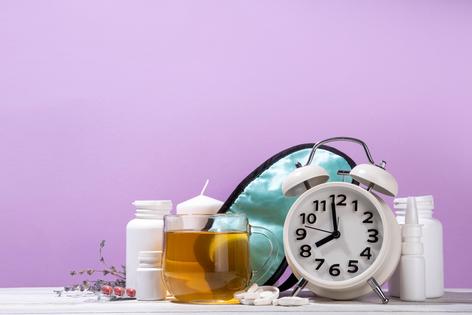Should you be sleepmaxxing to boost health and happiness?
Published in Health & Fitness
If you’ve been on TikTok lately, you know it’s hard to avoid countless influencers touting a concept called sleepmaxxing. Their posts provide tips and tricks to get longer, better, and more restorative sleep. And why not? Sleep is considered a pillar of good health and is related to everything from brain health to cardiovascular health, and even diabetes.
But what exactly is sleepmaxxing? And how likely is it to deliver on claims of amped-up energy, a boost to the immune system, reducing stress levels, and improving your mood?
What is sleepmaxxing?
Depending on which social media platform you happen to be looking at, the recommended strategies for maximizing sleep differ. Tips include:
Does any research support sleepmaxxing?
A thorough search through PubMed, PsycNet, and Google Scholar reveals zero results for the terms “sleepmaxx” and “sleepmaxxing.” But wait — this certainly doesn’t mean that some influencer-recommended strategies are not evidence-based, just that the concept of sleepmaxxing, as a defined package, has not been scientifically studied. But yes, some of the strategies — including one uncomfortable, though popular, choice — lack evidence.
Can mouth-taping improve your sleep?
TikTok users have claimed that taping your mouth while you sleep has benefits, such as reducing snoring and improving bad breath. A team from the department of otolaryngology at George Washington University was prompted by all of the social media buzz on the topic to review research on the impact of nocturnal mouth taping. Spoiler alert: the authors note that most TikTok mouth-taping claims aren’t supported by research.
If you do snore, it’s important to discuss this with your medical team. Even if taping your mouth reduces your snoring, it can’t effectively treat a potential underlying cause of the snoring, such as allergies, asthma, or sleep apnea.
Sleepmaxxing or basic sleep hygiene?
Many strategies recommended by sleepmaxxers are essentially what sleep experts prescribe as good sleep hygiene, which has plenty of research backing its value. Common components of sleep hygiene are decreasing caffeine and alcohol consumption, increasing physical activity, sleep timing, reducing evening light exposure, limiting daytime naps, and having a cool bedroom.
While tips like these help many people enjoy restful sleep, those who have an insomnia disorder will need more help, as described below.
Melatonin, early bedtime, weighted blankets, and — kiwi fruit?
Other strategies suggested by sleepmaxxers are based on limited scientific data. For example:
Could you have orthosomnia?
The expectation of flawless sleep, night in and night out, is an unrealistic goal. Orthosomnia is a term that describes an unhealthy pursuit of perfect sleep. The pressure to get perfect sleep is embedded in the sleepmaxxing culture.
With more and more people able to access daily data about their sleep and other health metrics through consumer wearables, even a person who is objectively sleeping well can become unnecessarily concerned with optimizing their sleep. While prioritizing restful sleep is commendable, setting perfection as your goal is problematic. Even good sleepers vary from night to night, experiencing less than desirable sleep a couple of times per week.
It is also noteworthy that some of the most widely viewed recommendations on TikTok are not supported by scientific evidence.
Do you really need to fix your sleep?
A good first step is to understand whether or not there is anything that you need to fix! Consider tracking your sleep for a few weeks using a sleep diary, and pair this data with a consumer wearable (such as a Fitbit or Apple Watch). Both imperfectly capture sleep data when compared to the gold-standard tool sleep experts use (polysomnography, or a sleep study). However, combining the information can give you a reasonable assessment of your sleep status.
Regularly getting restful sleep can indeed boost health and mood. And all of us can benefit from following basic sleep hygiene tips. But if it takes you 30 minutes or more to fall asleep, or if you are up for 30 minutes or more in the middle of the night, and this happens three or more times per week, then consider reaching out to your health care team to seek further evaluation.
There are effective, nonmedication treatments that are proven to help you sleep better. One example is cognitive behavioral therapy for insomnia, which can dramatically improve insomnia symptoms in a matter of weeks.
(Eric Zhou, Ph.D., is a contributor to Harvard Health Publications.)
©2025 Harvard University. For terms of use, please see https://www.health.harvard.edu/terms-of-use. Distributed by Tribune Content Agency, LLC.










Comments